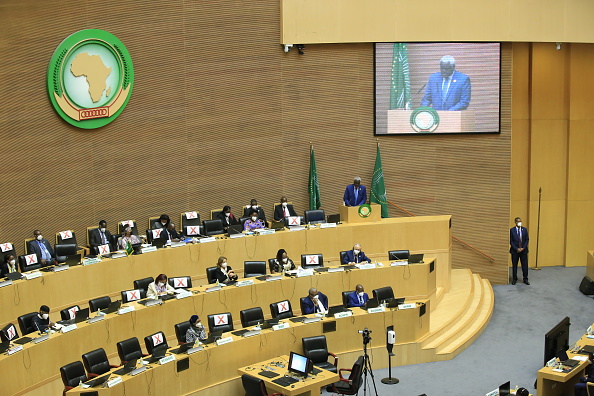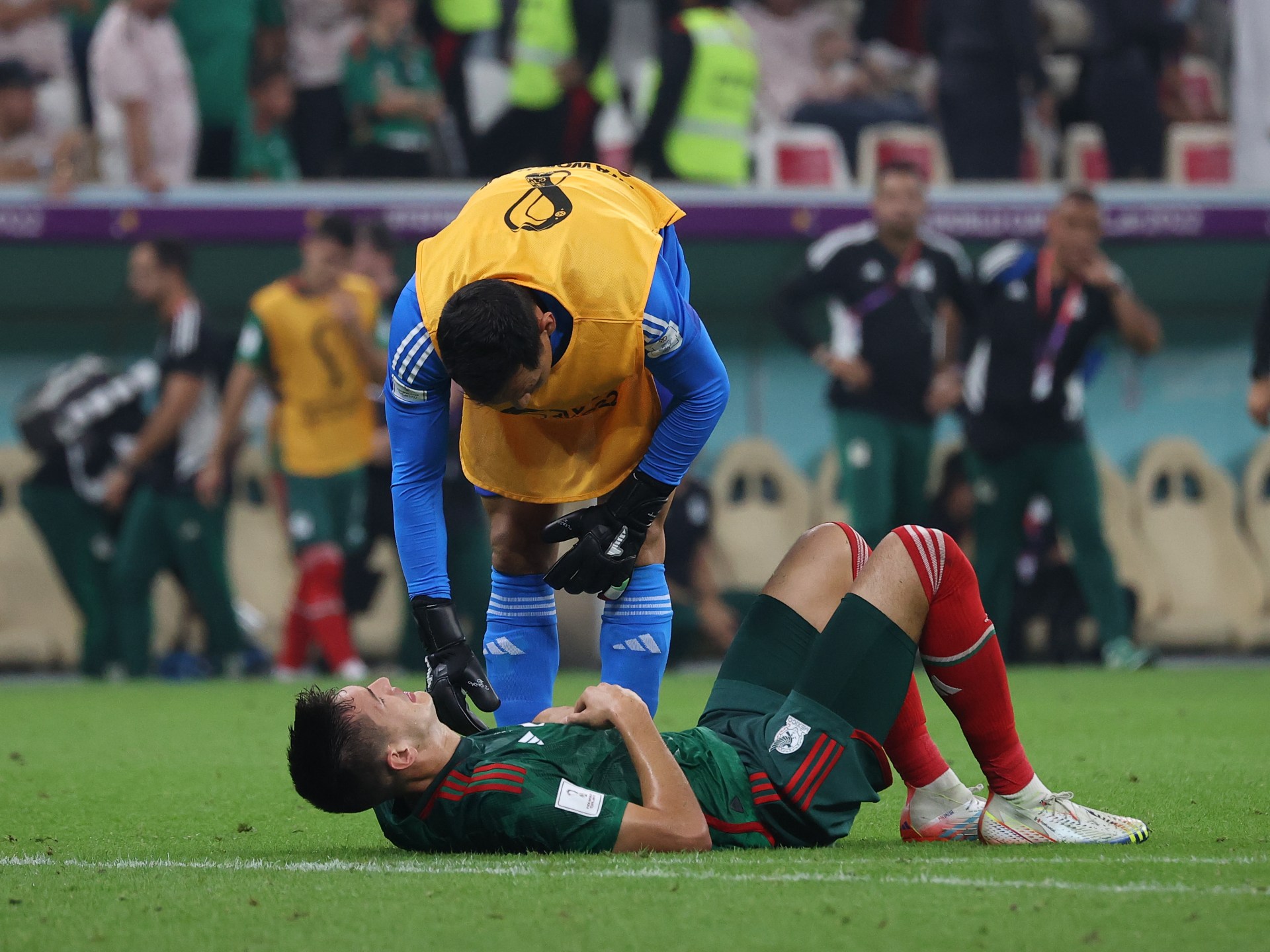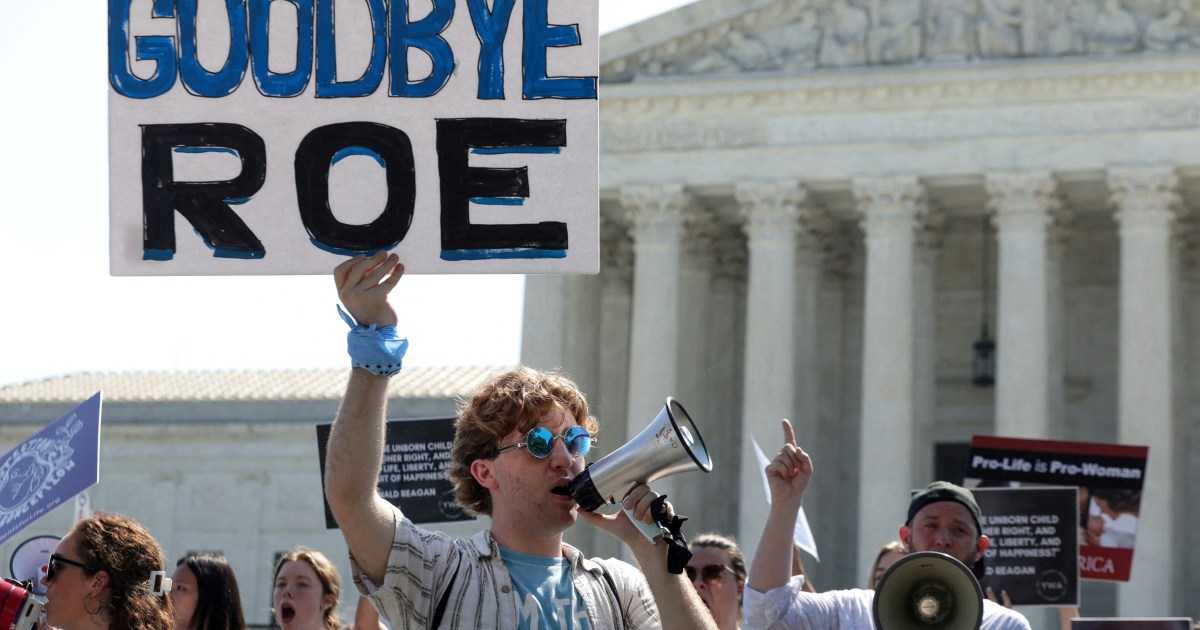HOLD: What to expect at the 6th EU-AU Summit | News
The sixth European Union-African Union summit kicks off on Thursday in Brussels, with the aim of strengthening and recalibrating the economic and strategic partnership between European and African countries. It comes amid tensions over the management of the global pandemic and a recent wave of coups d’état in parts of Africa.
The two-day conference is expected to evolve from the donor-recipient dynamic that has often characterised post-colonial relations and instead deliver concerted solutions to global challenges including climate change.
“What you want from Africa, you should also expect Africa to want from you,” said Fred Ngoga Gateretse, head of the AU’s conflict prevention and early warning division, summing up the attitude of reciprocity driving the 55-member bloc ahead of the summit.
Forging a partnership as equals
Speaking at an online conference on Tuesday, Ngoga Gateretse said African nations were being more assertive, moving past a colonial mentality that had previously resulted in the acquiescence to EU proposals.
The Africa-EU Partnership was formally established in Cairo in 2000 and has been traditionally held every three years. The sixth edition, scheduled to follow Abidjan in 2017, was postponed for a year due to the pandemic.
For the AU, the long-awaited summit will be an opportunity to change its position as “one of the poorest rich in the world” and forge a partnership of equals that “maximise[s] our ability to benefit from our own resources,” Ngoga Gateretse said.
This year’s summit is expected to steer clear of long negotiations on a shared document. Instead, efforts will be directed at producing a succinct two-page joint statement summing up core shared values and launching an ambitious set of agreements as part of the Africa-Europe Investment Package.
Additionally, the format of the sixth edition will move towards a more participatory one, veering away from individual remarks. The 27 EU and 55 AU heads of state and their delegations will be involved in roundtables to flesh out concrete and deliverable initiatives.
“There was a tendency to jump from one summit to the next without enough happening in between and there is a real awareness that this time it should be different,” Koen Doens, director-general for International Cooperation and Development (DEVCO) at the European Commission, said at a briefing on Tuesday.
“The idea is to set up a follow-up mechanism that can keep the agenda alive so that we don’t forget about it until the next summit,” he added. What shape this follow-up mechanism will take is still being debated.
A new era
The push for greater investments comes as the world emerges from the COVID pandemic, which has hit the African continent particularly hard. World Bank figures show debt levels in low- to middle-income countries across sub-Saharan Africa reaching $702bn in 2020 – the highest in a decade.
With the continent is in dire need of boosting its economy, it provides fertile ground for European investments. The EU will aim to outpace its competitors by combining its grand connectivity strategy, referred to as Global Gateway, with the $1 trillion European Green Deal initiative for tackling climate change at home and abroad.
This week, the EU announced a new €150 billion ($169.67bn) Global Gateway Investment Package for Africa to fund digital transformation, renewable energy, education, mobility, and more across the African continent over the next seven years.
However, more actors are emerging as possible partners for African countries. China, the EU’s main competitor on the continent, met African leaders in 2021 at the Forum on China-Africa Cooperation (FOCAC). The AU has also held summits with the United States, Japan, and Turkey, and there are plans for a conference with Russia at the end of 2022.
“The EU is a relevant partner but it’s no longer the main or the most important partner, while at the same time Europe’s attachment to Africa is significant,” Lidet Tadesse, an official of the European Centre for Development Policy Management (ECDPM), said at a Tuesday briefing.
“The African side is increasingly trying to assert itself,” said Tadesse, adding that while a power imbalance persists, the AU is now expected to play an increasingly active role in the summit.
According to Helena Koenig, a senior official at the European Commission’s Directorate-General for Trade, the EU strategy to rejuvenate its partnership with Africa will rely on de-risking investment through public funds to engage the private sector and promote a green vision for the latter’s development.
“There can’t be any doubts in our partners that we are ready to go higher in our ambitions than we’ve ever done before,” Koenig said during an online briefing on Tuesday.
While green deals are likely to see convergences between both parties, newly proposed European levies on gas exports from the continent are likely to cause friction, including with Macky Sall, the president of Senegal, who takes over as chair of the African Union just before the summit.
Divergences also persist on COVID vaccines and the thorny question of migration.
On Monday, the EU issued the latest refusal to waive vaccine patents. Several developing countries, including South Africa, have called for the temporary abandonment of intellectual property protections in the fight against the pandemic to boost global production and help address inequalities in vaccine distribution.
While European states are bent on combating illegal migration, the AU is keen to reach an agreement on legal mobility, which it sees as a means to tackle poverty, displacement and unemployment, especially among youth.
Security and stability
Also on the agenda is security in the wake of a string of military takeovers in the Sahel region.
French President Emmanuel Macron is expected to announce the withdrawal of French troops from Mali during the summit, ending a nine-year mission that successive French presidents had argued was crucial for regional and European security.
“If the conditions are no longer in place for us to be able to act in Mali – which is clearly the case – we will continue to fight terrorism side-by-side with Sahel countries who want it,” French foreign minister Jean-Yves Le Drian said on Monday.
Mali, Guinea, Sudan, and Burkina Faso have all been suspended from the AU over the past year after their governments were overthrown by the military.
In Burkina Faso, where President Roch Kabore was deposed by the military last month, he has been blamed alongside French troops for being unable to combat an ongoing armed uprising.
Last month, pro-military demonstrators held Russian flags, calling for an intervention similar to the situation in the Central African Republic, where Russian mercenaries fought off an armed uprising last year.
At the summit, the two sides are due to discuss a text on an Africa-Europe Security and Stability architecture, a joint commitment to strengthening African capacities and supporting African peace operations.




